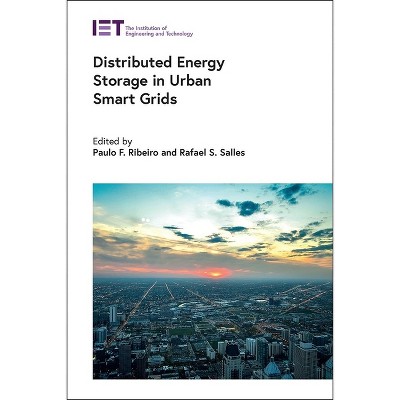Sponsored

Ai-Based Forecasting of Solar Photovoltaics Power Generation - (Energy Engineering) by Elham Shirazi & Wilfried Van Sark (Hardcover)
Pre-order
Sponsored
About this item
Highlights
- Photovoltaic energy generators large and small exhibit intermittency, making it hard to predict production to ensure grid power quality.
- Author(s): Elham Shirazi & Wilfried Van Sark
- 312 Pages
- Technology, Power Resources
- Series Name: Energy Engineering
Description
About the Book
This book conveys approaches for using AI for improved PV forecasting, which is imperative in increasing the share of clean power to achieve decarbonisation of the energy system. Chapters cover machine and deep learning, evaluation, grid integration and case studies.
Book Synopsis
Photovoltaic energy generators large and small exhibit intermittency, making it hard to predict production to ensure grid power quality. Artificial intelligence (AI) and machine learning (ML) offer means to improve PV forecasting based on data from existing systems, weather forecast data, and other information. The ability to forecast PV generation is crucial for grid management, energy trading, and efficient energy utilization.
AI-Based Forecasting of Solar Photovoltaics Power Generation blends theoretical knowledge with practical case studies, and covers both traditional and advanced deep learning techniques, and the intricacies of AI algorithms. Chapters cover data collection and processing, solar forecasting based on statistical time-series, machine and deep learning, hybrid and probabilistic approaches, model optimisation and hyperparameter performance evaluation, use of sky imager, and forecasting for energy system integration.
This book is for researchers and advanced students involved with PV systems in industry and academia, as well as for data scientists involved with energy systems. It also serves advanced students in EE and photovoltaics and policymakers. It provides readers with a comprehensive understanding of how AI can be leveraged to forecast solar PV energy outputs more accurately.
Shipping details
Return details
Trending Book Pre-Orders











